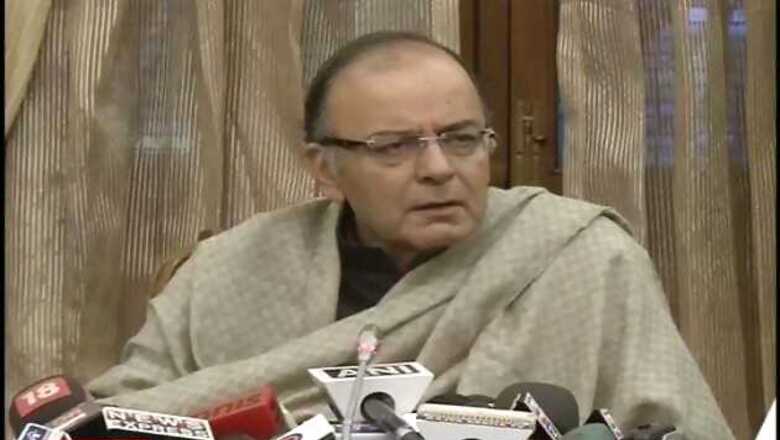
views
Mumbai/ New Delhi: Finance Minister Arun Jaitley denied on Tuesday that he was pressuring the Reserve Bank of India (RBI) into cutting interest rates, after his comment that the high cost of capital was stifling investment sent markets into a tizzy.
Jaitley, in a speech in Delhi on Monday, said "costly capital" was one of the factors impacting manufacturers.
Analysts said his remarks were the most public attempt yet by the government to press the Reserve Bank of India governor into easing rates.
But Jaitley denied that his remarks were intended to pressure RBI Governor Raghuram Rajan, and had instead been meant to discuss the challenges facing the manufacturing sector.
"The fact is that there was not a single sentence reference (not even a word) in my entire speech to either the Reserve Bank or its Governor," Jaitley said in a Facebook posting.
"One of the many points that I made was that the cost of capital has to be cut down. Any one speaking on the subject of 'Make in India' into a manufacturing hub would necessarily suggest this."
Traders said Jaitley's comments on Monday had reinforced expectations that the government is keen for the RBI to lower borrowing costs rates in order to help economic growth.
The Finance Minister said when "credit offtake is slow, the infrastructure creation becomes slower, manufacturers find it difficult to afford costly capital".
Benchmark 10-year bond yields fell 4 basis points to 7.89 per cent on Tuesday, not far from a near 1-1/2 year low of 7.82 per cent in mid-December.
Jaitley has previously also had to clarify comments after a speech in which he was widely seen as chiding the country's auditor for sensationalising its findings, creating a political row. However, the Finance Minister later accused media of not properly relfecting "the spirit" of his speech.
Inflation has cooled markedly in recent months, but Rajan has indicated he would move cautiously on any rate cuts, seeking to avoid having to flip-flop on policy should price pressures pick up again.
The central bank has also made rate cuts contingent on the government meeting its budget deficit and undertaking fiscal reforms to reduce borrowing.
Still, if inflation remains tame, most economists expect the RBI to lower rates at its next policy review in February or in April.
"The RBI is very clear that they need to see reforms from the government," said Jayesh Mehta, managing director and country treasurer at Bank of America-Merrill Lynch in Mumbai. "So now with every reform like the ordinance on land acquisition passed, there will be pressure on RBI to cut rates."
Rajan has frequently lauded his good relationship with the Finance Minister in media interviews. The central bank is not independent from the Finance ministry although it has long enjoyed autonomy in setting interest rates.















Comments
0 comment